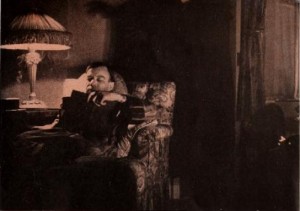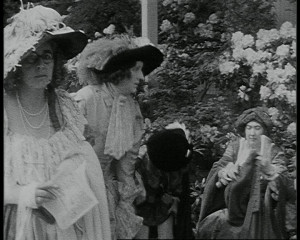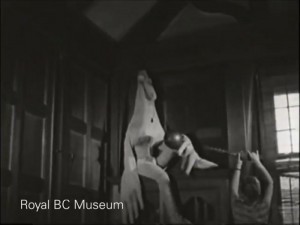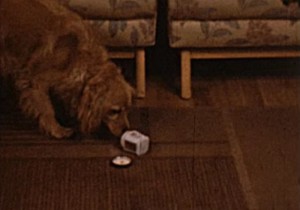Jami is a black-and-white film about beautiful girls that are actually the International Playboys, a well known singing and dancing group of three young men, in seven minutes, Larry Zazelenchuk of Sudbury, Ontario, shows us how the boys make-up to be some of the prettiest girls you have ever seen. In their conversation during make-up in the dressing room the boys leave no doubt about the fact this is not another film about homosexuals. This is strictly show business, well filmed and, certainly, an unusual subject,"PSA Journal, Mar. 1970, 43-44.

"Among the ten best, The Last Entry, running seven reels 16mm., is one of the most ambitious amateur photoplays ever undertaken and completed. The plot, requiring many elaborate interior sets, is based on a mystery story that opens with a house party. While a room is darkened for the projection of amateur films, one of the guests is murdered and all present may be suspected equally. The detective handling the case uncovers the fact that the murdered man, an author, has lived on blackmail effected by threats of exposure through publication, which throws suspicion on several of the guests of the house party who were discovered to be his victims. However, in the end, the murder is solved by screening the same pictures that were on the projector when it was committed. Although this plot offered great difficulties in the direction of large group scenes, the creation of the necessary lighting effects and the interpretation of the actors' roles, it is beautifully and suavely handled. In the film are several lighting treatments that may be listed as among the most effective ever achieved by amateurs. One chase sequence staged through long corridors, a large, dimly lighted attic and on the roof of the mansion at night in the rain, can be likened only to the effects secured in the best professional mystery photoplays. James F. Bell, jr., ACL, was director with Charles H. Bell, ACL, and Benjamin Bull, jr., ACL, cameramen and Lyman Howe, ACL, in charge of lighting." Movie Makers, Dec. 1932, 537-538.
"A fun time is in store for the smartly dressed women disembarking from the bus, in this lovely film from 1929. Joshua Preston, Mayor of Stockport, entertains a group of nurses at Glengarry, his family home, with a garden tour, and games and races, followed by tea on the lawn. With music as well, this makes for a grand afternoon out. The reel ends with the Preston family in the Glengarry garden." (BFI Player)

A short film documenting a historical re-enactment in Runnymede, Surrey.

"Produced as a gift to Dorothy Burritt's husband, filmmaker Oscar Burritt (who was working in Toronto at the time), this is an offbeat study of life at their Vancouver apartment -- suite 2, 1960 Robson Street. The camera explores the apartment and the household memorabilia, and Dorothy is seen sitting for a portrait by painter Peter Bortkus. Later some friends drop by for a screening of Sacha Guitry's film Pearls of the Crown, followed by a party. Among the guests are Moira Armour, film editor Maureen Balfe, UBC student Stanley Fox, photographer Peter Varley, and an unnamed figure wearing a bird costume. Most of the people shown would have been involved with the National Film Society of Canada (Vancouver Branch). Suite Two won honourable mention (amateur category) at the first Canadian Film Awards in 1949." (BC Archives)
The film was restored in 1986 by the British Columbia Archives.
"Film about a surprise party at the Woodley residence." Library and Archives Canada.

A married couple is hosting another couple for dinner. Before the dinner, the husband gives his wife a container of "vanishing cream," which they both use believing it to be a skincare product. When the dinner guests arrive, people and pets that contact the cream vanish from sight.
Total Pages: 2